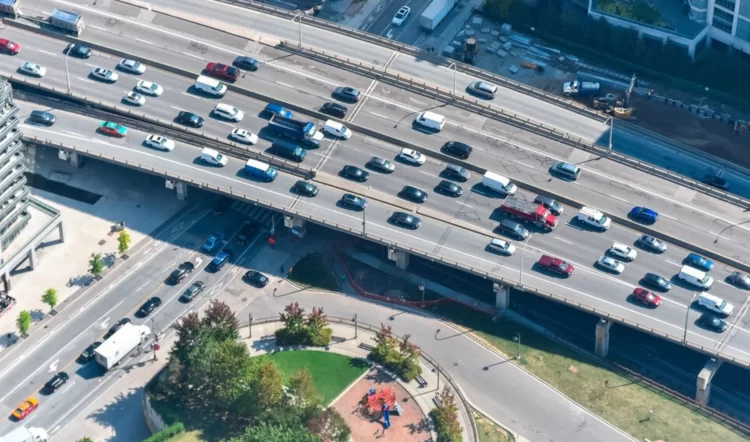Container delays don’t happen very often, but when they do, they can be very frustrating. Given the recent challenges in global trade, delays may occur and your cargo may depart or arrive more slowly.
When you have ordered a shipment, often you want to have it delivered as planned. Your customers are counting on you and asking for your product to arrive on time – and they won’t be happy if it doesn’t arrive on time. At Agung Logistics, we strive to deliver your cargo on time. However, delays can occur, and we know that this can be a huge challenge for many small and medium business owners.
So, why do your containers get delayed, and how can you prevent your business from potential delays? Read our checklist to find out what might be causing your cargo delay and how you can prepare for it:
-
Pandemic and ever-changing customer habits
Since 2020, the Covid-19 pandemic has had a significant impact on shipping. As consumer behavior has changed, they are shifting towards an increase in the goods purchased and a decrease in the services purchased. With that said, many carriers are currently very busy transporting goods around the world. Especially the trade routes from Asia to Europe and from Asia to North America were greatly affected. This resulted in a lack of equipment and space restrictions on many ships. While the situation continues, it is important to keep up with the latest developments.
-
Extraordinary events and external factors in the world of shipping
Some delays may be completely beyond the reach of you or your logistics partners – for example, external factors such as weather, piracy, war, fire, and extraordinary events – which are described as “force majeure”. Hurricanes, cyclones and many other natural disasters can occur, and unfortunately, they can have a severe impact on maritime transport. Another example is the blockage of ships in the Suez Canal in March 2021. The blockage made it difficult for cargo to be delivered smoothly and should result in delays. With about 12% of global trade passing through the Suez Canal annually, the trade route provides the shortest sea route between Asia and Europe. And the blockage has stalled this global trade for a week at the end of March.These factors should come into play when estimating your supply chain. To prepare yourself, take a look at the various supply chain forecasting methods to make it easier for you to prepare for such an event.
-
Schedule changes and traffic challenges
Delivery may be delayed due to schedule changes or traffic challenges, especially when using Ground Transportation. This is especially true during peak seasons such as Chinese New Year, Eid, Christmas or the holiday season. Many factories are closed for more than a week during such holidays, with full productivity not resumed for nearly a month. So, logistics companies, carriers, and shippers have to handle this request and the subsequent backlog once the regular work schedule resumes. Therefore, we recommend always including extra days in your schedule, especially during peak seasons when traffic jams on and around ports may increase more than usual.
-
Problems at Customs
When you ship cargo overseas, you need to present various shipping documents. It goes without saying that you might forget about certain documents, fill them in incorrectly, or the authorities might check your cargo and carry out further checks. Additionally, you may need to be aware of possible changes in the Customs Declaration with events like Brexit disrupting global trade and implying new rules and regulations for cargo around the world. These all can cause further delays in terms of transporting your cargo. To avoid such problems, take a look at the most important documents when making international shipments.
-
Lack of clarity regarding required actions
With every shipment comes a series of actions to ensure it arrives on time. When a container arrives at the terminal, there is a responsibility on your part and we as your logistics partner. At Agung Logistics, we try to inform you as best we can, but there may be action for you. Examples could be delivery orders, Bills of Lading, shipping instructions or VGMs.If you have any questions, follow your delivery progress on our platform or contact us via the website’s contact page for more information.
-
Insufficient technology
Sometimes, delays may be caused by your logistics provider’s inadequate technology. This could be out of date software or a lengthy process for ordering your cargo via telephone and email networks. If you are shipping with Agung Logistics, you can rest assured that we use the latest technology to quickly transport your cargo and track it.
-
Harbor jams or port strikes
As already outlined, too many containers can cause port congestion – whether caused by peak seasons and extraordinary events such as pandemics, port strikes or labor issues. These factors can result in a delay of weeks.
-
Delays in cargo production
For the most part, suppliers give shippers a date when production of their goods is supposed to be completed. Then, the shipper plans the transportation accordingly. However, the sender often forgets to add a buffer for this possible delay. This again can result in delays for the entire transport. Our tip is to always plan some buffers for production delays. In this way, you can prevent further delays in transporting your cargo.
-
Rotating delivery
“Rotating delivery” means that the cargo of sea cargo has not been loaded onto the ship to be used for sailing. This occurs when operator capacity decreases while customer demand increases. Rotational shipping can also happen when you don’t have proper documentation for your shipment. Choosing the right logistics provider can prevent you from the hassle. Buddy as a customer determines the urgency of your shipment. Getting loading priority, equipment priority and space for your cargo can be the most efficient way for the most time-sensitive cargo.
-
Cargo damaged during transportation
Another factor that should not be forgotten is that your cargo can be damaged during its transportation. Damage can occur – albeit irregularly.
What you can do to avoid container delays
At Agung Logistics, we try our best to manage the expectations of our customers regarding space and equipment availability at each port. If you are ready to start shipping, you can login to our platform and register to be our partner.




Leave a Comment